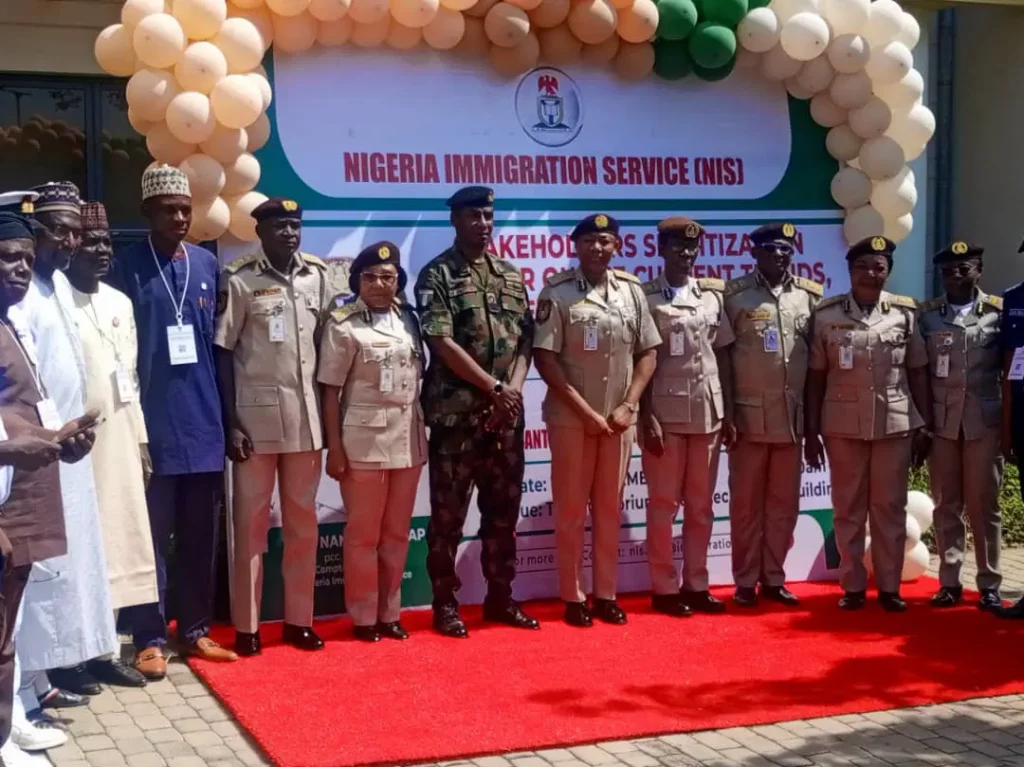The Nigeria Immigration Service (NIS) has intensified efforts to curb irregular migration, stopping 294 Nigerians without valid travel documents from leaving the country and turning back 332 undocumented migrants at the Seme border. In addition, 36 victims of human trafficking and child labour were rescued during recent operations.
Comptroller General of Immigration Service, Kemi Nandap, revealed these results at a stakeholders’ seminar in Abuja on the theme “Evolving Patterns in Smuggling of Migrants: Towards a Coordinated National Response.” She described the growing trend of Nigerians seeking to leave the country irregularly — popularly known as “Japa” — as concerning, highlighting the risks involved in pursuing “greener pastures” abroad.
Nandap explained that migrant smuggling is becoming increasingly complex and transnational, orchestrated by organised criminal networks. To tackle the challenge, the NIS has adopted a multi-dimensional approach that includes strengthening legal frameworks, expanding public awareness campaigns, and enhancing collaboration with local and international partners.
Why is Nigeria cracking down on irregular migration?
Smuggling puts lives at risk and affects families and communities.
The NIS aims to protect citizens, prevent exploitation, and ensure safe and orderly migration.
This year, over 577,200 NYSC members have been sensitized on the dangers of irregular migration. The nationwide Anti-Smuggling Sensitization Campaign, initially launched in Lagos, has been extended to schools, markets, worship centres, and motor parks across the country. Plans are also underway to establish Anti-Smuggling Clubs within schools and NYSC Community Development Service programs.
The Seme border operations benefited from newly installed CCTV cameras, which helped the NIS intercept irregular migrants and rescue trafficking victims. Nandap emphasised that these figures reflect only a short period, underlining the scale of the problem.
Nigeria is also participating in international migration dialogues such as the Khartoum, Rabat, and Niamey Processes, aimed at fostering cooperation against irregular migration. Nandap stressed that combating migrant smuggling requires a coordinated national response, involving government agencies, civil society, educators, faith-based organisations, and the private sector.
She concluded: “The fight against smuggling of migrants is not only a security imperative but also a moral responsibility. Every smuggled migrant represents a life at risk, a family disrupted, and a community robbed of its potential.”
The seminar brought together key stakeholders to discuss strategies for protecting Nigerians from exploitation and ensuring safe, orderly, and regular migration across the country.

